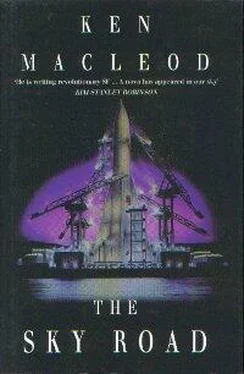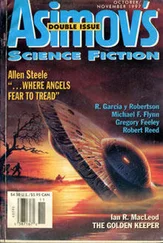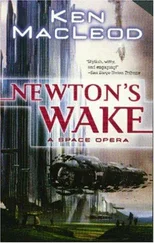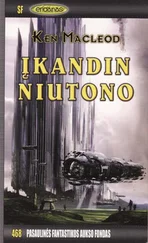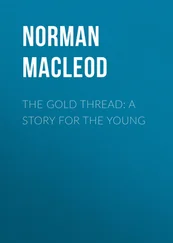Ken Macleod - The Sky Road
Здесь есть возможность читать онлайн «Ken Macleod - The Sky Road» весь текст электронной книги совершенно бесплатно (целиком полную версию без сокращений). В некоторых случаях можно слушать аудио, скачать через торрент в формате fb2 и присутствует краткое содержание. Год выпуска: 1999, ISBN: 1999, Издательство: Orbit, Жанр: Фантастика и фэнтези, на английском языке. Описание произведения, (предисловие) а так же отзывы посетителей доступны на портале библиотеки ЛибКат.
- Название:The Sky Road
- Автор:
- Издательство:Orbit
- Жанр:
- Год:1999
- ISBN:1-85723-755-2
- Рейтинг книги:3 / 5. Голосов: 1
-
Избранное:Добавить в избранное
- Отзывы:
-
Ваша оценка:
- 60
- 1
- 2
- 3
- 4
- 5
The Sky Road: краткое содержание, описание и аннотация
Предлагаем к чтению аннотацию, описание, краткое содержание или предисловие (зависит от того, что написал сам автор книги «The Sky Road»). Если вы не нашли необходимую информацию о книге — напишите в комментариях, мы постараемся отыскать её.
The Sky Road — читать онлайн бесплатно полную книгу (весь текст) целиком
Ниже представлен текст книги, разбитый по страницам. Система сохранения места последней прочитанной страницы, позволяет с удобством читать онлайн бесплатно книгу «The Sky Road», без необходимости каждый раз заново искать на чём Вы остановились. Поставьте закладку, и сможете в любой момент перейти на страницу, на которой закончили чтение.
Интервал:
Закладка:
On Merrial’s lap, with her left arm—crooked like mine—protectively over it, lay a bulky poke of polished leather, fastened with a drawstring thong. It may have bulged a little larger, and weighed a little heavier, than the kind of bags that lasses tend to lug around, but it would have taken a close and sharp observer to notice. Inside it, concealed by a layer of the sort of oddments one would expect to find in such a poke—a cambric kerchief, cosmetics, smallbore ammunition and the like—was the complicated apparatus that Fergal had delivered to her house early on the Sunday evening. It was built around a seer-stone about fifteen centimetres in diameter, nested in neat coils of insulated copper wire. The strangest aspect, to me, of this device was an arrangement of delicate levers, each marked with a letter of the alphabet, queerly ordered: QWERTYUIOP… Probably, I thought, a spell.
“Grotty old place,” said Merrial, rubbing her face with her hands and looking around the damp, flag-stoned concourse of Inverness station. Her cheeks reddened, her eyes widened under the smooth friction of her palms. Her dress, this time of blue velvet, looked a bit rumpled. We were standing at the coffee-bar, having twenty minutes to wait for the 8.30 to Glasgow.
I looked up at the creosoted roof with its wide skylight panels and suspended electric lamps. “At least it doesn’t have pigeons.”
“Can’t say herring-gulls are much of an improvement.” She kicked out with one booted foot, sending a hungry, red-eyed bird squawking away. One end of the station opened to the platforms, the other to the main street. The arrangement seemed peculiarly adapted to set up cold but unrefreshing draughts. Despite its mossy walls and paving, the station was more recent than the buildings outside, most of which pre-dated the Deliverance, if not all three of the world wars.
I finished my bacon roll, smiled at Merrial—who was mumbling, half to herself and around mouthfuls of her own breakfast, some irritated speculation about the degenerative evolution of scavenging sea-birds—and wandered over to the news-stand. There I stocked up on cigarettes and bought a copy of the Press and Journal, a newspaper which outdoes even the West Highland Free Press in its incorrigible parochialism and venerable antiquity. Most of its pages consisted of small advertisements, to do with fishing, farming, uranium and petroleum mining and, of course, Births, Marriages and Deaths. The last of these could take up half a tall column of small print: “Dolleen Starholm, peacefully in her sleep, aged 251 years, beloved great-great-grandmother of…” followed by scores of names; and sometimes (as in this case) the discreet indication of cult affiliation: “RIP” or “IHS”. More frequent, and more prominent, were proud affirmation of the orthodox hope: “Returned by the Flame” (or the Sky or the Sun or the Sea) “to the One”.
I went back to the counter and, while Merrial finished off her breakfast, scanned the sparse snippets of national and international news that had managed to wedge their way in among the earth shak-ingly important football and shinty reports, fishing disputes and Council debates.
The Congress of Paris had ceremonially opened its ninety-seventh year of deliberations, and had immediately plunged into bitter controversy about a proposal to empower the Continental Court to adjudicate border problems between cantons and communes; the apparently more difficult matter of disagreements between countries having been resolved by the Congress long ago, its success had apparently gone to its collective head.
I sighed and turned the page. Another American republic had voted a contribution from tariff revenue to the spaceship project, which was gratifying but mysterious—there was even an editorial comment about it, full of sage mutterings about how their ways were not ours, and that we should not disdain such assistance, immoral though it might seem to us. I wasn’t too sure; to me, it smelt of stealing money, but the Americans have a much greater reverence for their governments than people have in more civilised lands. If offered some loot by an African king or Asian magnate or South American cacique, I should hope the International Scientific Society would politely decline, and this case seemed little different. But all of this was, at this moment, quite theoretical, as no such offer, and indeed no news at all, from Asia or Africa appeared in today’s edition. I rolled it up and decided to leave the national news until later.
Menial brushed crumbs from her lips and looked at me with amusement. “You really look as though you’re paying attention to all that,” she said, picking up her leather poke. I hitched my canvas satchel on my shoulder and we strolled to the Glasgow train.
“Well, I do follow the news,” I said, somewhat defensively, as we took our seats, this time facing each other across a table. “What’s wrong with that?”
Menial shrugged. “It’s so… ephemeral,” she said. “And unreliable.”
“Compared with what?”
“Don’t misunderstand me,” she said. “I’m sure this, what is it—” she reached for the paper, and spread it out “—Congress here is real, and really did do what the article says it did. But it is only a tiny part of the truth, and perhaps not the most important part of what is going on there in Paris. Let alone what is going on elsewhere in Paris. So that, and all the other such pieces give you, really, a false picture of the world.”
I could have been offended, but was not. “I’m a scholar of history, remember?” I said. “I understand how newspaper reports, even documents aren’t everything—”
“Oh, you don’t want to hear what I think about historical documents. ”
“So what else can you do?”
She frowned at me, puzzled. “You travel around and find things out for yourself.”
“Aye, if only we all had the time.”
She touched the tip of my nose with the tip of her finger. “It’s what tinkers do, and they have all the time in their lives for it.”
The train pulled out, the Moray Firth in sight at first, with its kelp fields and fish-farms, and then nothing to see for a while but the close-packed pines of Drumossie Wood as the train turned and the engines took the strain of the long, slow ascent to Slochd.
A couple of hours later, maybe, after Speyside of the malts and bleak Drumochter, we were in the long and beautiful glens between Blair Atholl and Dunkeld. On one side of the line were streams full of trout and turbines, on the other hillsides buzzing with the saws and drills of workshops. The train stopped for five minutes at Dunkeld. A small, old town of stone, still with its Christian cathedral.
Merrial looked out of the windows, around at the scene, and sat back with a slight shudder.
“A strange place,” she said, “with the hills around it like an ambush.”
“But that’s why it’s a great place,” I said, and told her the story of how the Cameronians had held off the Highland host and saved the Revolution to which they owed their freedom. She listened with more interest, even, than my telling of the tale deserved, and leaned back at the end and said, “Aye well, maybe there’s some use to history, after all. I’ll never be afraid of these hills again.”
It was two in the afternoon by the time the train reached Glasgow’s Queen Street Station, and glad enough we were to get off it. Sometimes two people who can fascinate each other endlessly when alone together, and who can spark off each other in convivial company, find themselves inhibited among strangers who are unignorably in earshot, and find themselves growing shy and silent and stale. So it was with us, towards the end of that journey. I couldn’t even find it in my heart to talk about the Battle of Stirling when we passed through the town.
Читать дальшеИнтервал:
Закладка:
Похожие книги на «The Sky Road»
Представляем Вашему вниманию похожие книги на «The Sky Road» списком для выбора. Мы отобрали схожую по названию и смыслу литературу в надежде предоставить читателям больше вариантов отыскать новые, интересные, ещё непрочитанные произведения.
Обсуждение, отзывы о книге «The Sky Road» и просто собственные мнения читателей. Оставьте ваши комментарии, напишите, что Вы думаете о произведении, его смысле или главных героях. Укажите что конкретно понравилось, а что нет, и почему Вы так считаете.
